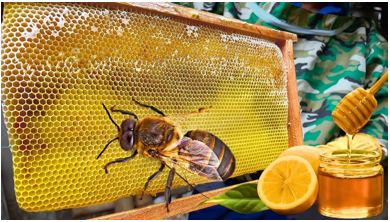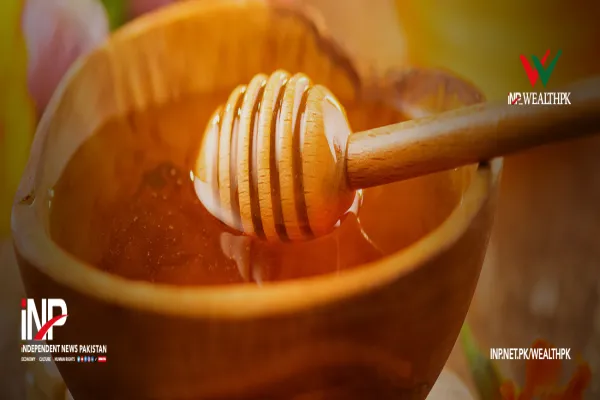i INP-WEALTHPK
Azeem Ahmed Khan
The director of Honey Bee Research Institute (HBRI) at National Agriculture Research Centre has highlighted the need to increase forest cover in Pakistan to boost honey production, citing the country's limited forest resources compared to other nations.

"Bee flora will increase our honey production; the more bee flora plantation we have, the more honey production we will have," Dr Ghulam Sarwar told Wealth Pakistan. Pakistan currently has just 3% to 3.5% forest cover, while countries like China boast about 25% forested area. He stressed the importance of conserving existing bee flora, such as the indigenous Beri (cidre) plants and Acacia trees, which are both crucial for honeybees.
According to Dr Sarwar, areas rich in honeybee-loving plants include Khyber Pakhtunkhwa, Punjab, and parts of Balochistan provinces. However, climate change and floods have been adversely affecting plantations in these areas and consequently reducing honey production in the country. "When the plants are reduced (due to floods or heat stress) our honeybees are also reduced," he explained.
He said that maximum plantation efforts are needed alongside equipping farmers with modern technology. He said that the National Agricultural Research Council is working on this.
“We are training people and building their capacity because many beekeepers are operating without technical knowledge," he added. This improves their quality of life while also supporting the country’s progress. The HBRI also focuses on coordinating honeybee research with provincial entities and prioritising apiculture challenges faced by beekeepers, Dr Sarwar said.
Export prospects hinge on quality, he observed, with most of Pakistan’s honey currently exported to Middle Eastern countries, including Saudi Arabia. However, markets in Japan, Europe, and America demand pesticide-free honey due to health considerations, a challenge in Pakistan where pesticides are used to combat mosquito-borne diseases such as dengue.
To address quality concerns, an integrated pest management project has been introduced by NARC to reduce pesticide use, combat pest resistance, and minimise environmental risks. Integrated pest management means using different ways to control pests and keeping a close watch on production, so that pesticides are only used when really needed.
Dr Sarwar emphasised the necessity of enhancing food safety standards to gain access to developed markets. He also pointed to a need for more advanced laboratories capable of testing honey quality to comply with international standards. “We have few laboratories because they require very expensive equipment,” he said.
Beekeeping not only offers income opportunities through value-added products such as beeswax, medicinal and skincare cosmetics, royal jelly, and propolis marketed as health supplements, but also supports agriculture. Bees are essential pollinators, contributing to improved crop yields and promoting food security by supporting both cultivated and wild plant ecosystems. As awareness of honey’s health benefits grows, its global demand continues to rise.
Credit: INP-WealthPk







